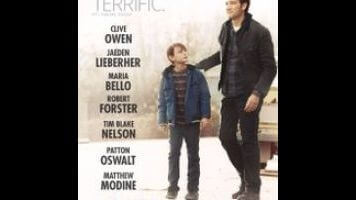The writer of Nebraska gets religion in The Confirmation

Bob Nelson’s The Confirmation opens with 8-year-old Anthony (Jaeden Lieberher) reluctantly taking confession with his local priest; the joke is that, when pressed, an innocent pre-teen boy can’t really think of anything he’s done wrong. By the end of the film, Anthony will have amassed a (modest) list of sins, but more importantly, he’ll have a much better understanding of the idea of forgiveness, the dual byproducts of spending a boys’ weekend with his floundering, alcoholic father Walt (Clive Owen) while his mother and her new husband attend a church retreat.
Nelson, who wrote the Oscar-nominated screenplay for Alexander Payne’s Nebraska, is an earnest filmmaker, which is not a badge of honor itself but does distinguish his work in a landscape ruled by glib indie comedy-dramas. His directorial debut is pitched interestingly between the tone of a typical Sundance discovery and a new-style “faith-based” production: Starting with its title, The Confirmation is a film with religion in its bones. Walt’s occupation is carpentry, and the plot (such as it is) revolves around his attempts to recover some valuable, stolen tools so that he can ply his trade—a wild goose chase that also enlists Patton Oswalt as a meth addict who’s worked up a list of possible perpetrators.
Sitting outside the church, Anthony confides to his dad, “I don’t want to eat Jesus,” which is played less as the younger generation’s rejection of traditional virtues than as a humble expression of spiritual anxiety. In the best moments, Nelson juxtaposes that ephemeral, eternal doubt against the concrete realities of small-town American poverty and marginality. A scene where Anthony hesitantly brandishes a gun in a neighbor’s backyard is sociologically loaded in a way that’s more resonant for being so offhand. (Ditto a bit where Walt painstakingly changes his own brake pads outside of a service center because he can’t afford the labor costs.)
The actors are all fine, especially Owen, who submerges both his matinee-idol handsomeness and British accent to play a man whose awareness of his failures hasn’t necessarily given him the perspective to reverse them; he gets inside the weariness of somebody who’s so used to things going wrong that he just rolls with the punches. Lieberher, who starred in the similarly themed (and inferior) festival crowd-pleaser St. Vincent, eschews cuteness, and has one terrific, emotionally precarious exchange with Maria Bello as his mom, who is looking for a reason to come down hard on her ex-husband and instead gets deftly finessed by her son. The Confirmation isn’t much to look at, and its rhythms are wobbly (the quest narrative starts to feel strained early on), but Nelson is a dogged enough dramatist that even the story’s resolutions—even the really pat and obvious ones—are satisfyingly earned.